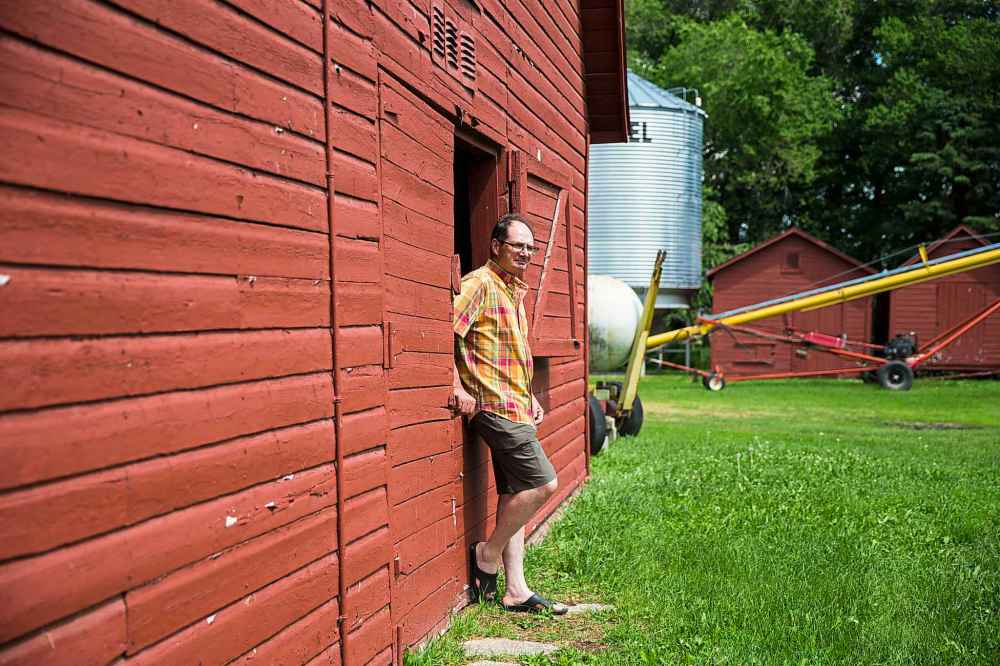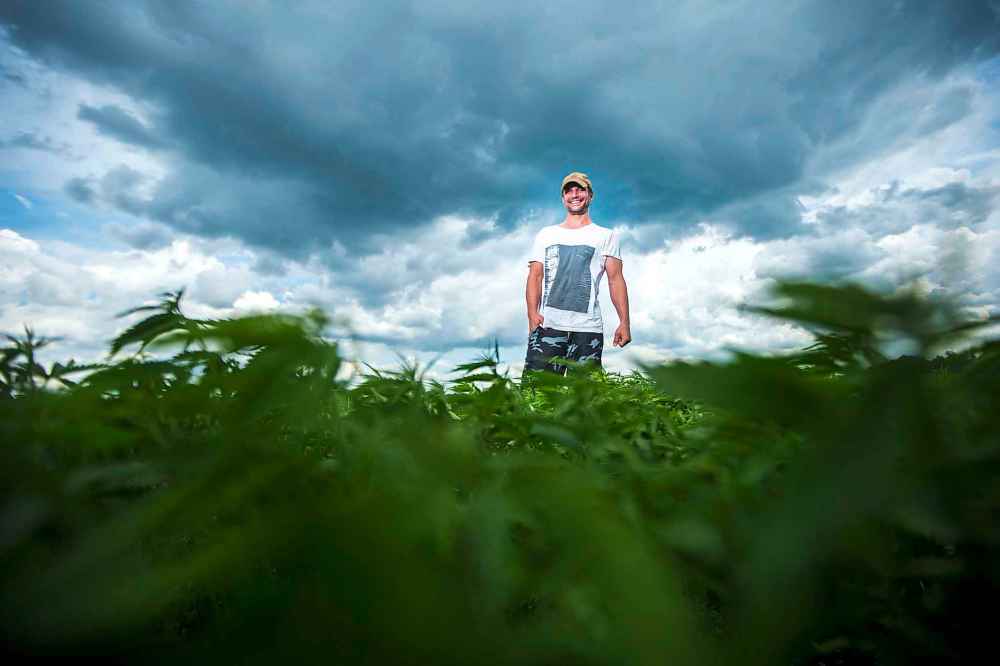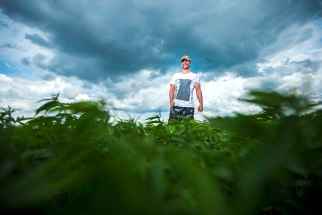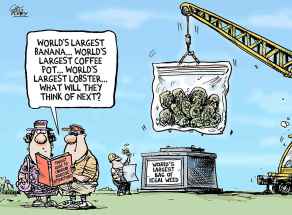Large-scale outdoor marijuana cultivation fraught with obstacles, Dauphin hemp farmers say
Read this article for free:
or
Already have an account? Log in here »
To continue reading, please subscribe:
Monthly Digital Subscription
$0 for the first 4 weeks*
- Enjoy unlimited reading on winnipegfreepress.com
- Read the E-Edition, our digital replica newspaper
- Access News Break, our award-winning app
- Play interactive puzzles
*No charge for 4 weeks then price increases to the regular rate of $19.00 plus GST every four weeks. Offer available to new and qualified returning subscribers only. Cancel any time.
Monthly Digital Subscription
$4.75/week*
- Enjoy unlimited reading on winnipegfreepress.com
- Read the E-Edition, our digital replica newspaper
- Access News Break, our award-winning app
- Play interactive puzzles
*Billed as $19 plus GST every four weeks. Cancel any time.
To continue reading, please subscribe:
Add Free Press access to your Brandon Sun subscription for only an additional
$1 for the first 4 weeks*
*Your next subscription payment will increase by $1.00 and you will be charged $16.99 plus GST for four weeks. After four weeks, your payment will increase to $23.99 plus GST every four weeks.
Read unlimited articles for free today:
or
Already have an account? Log in here »
Hey there, time traveller!
This article was published 26/06/2018 (2723 days ago), so information in it may no longer be current.
Outdoor marijuana farming is reportedly coming to Canada, but any hemp farmers considering a switch to psychoactive weed will need to take a hard look at pending government regulations first.
Fields of legal, industrial hemp are already thriving in Canada, but legal cultivation of drug-type marijuana has been restricted to indoor facilities. (Hemp and marijuana are the same plant — Cannabis sativa — but industrial hemp is bred to contain only trace amounts of the psychoactive chemical compound THC.)
The Globe and Mail reported Tuesday that the federal government will allow drug-type cannabis to be grown outside. The official regulations that would establish rules for outdoor cannabis cultivation could be published as early as this week, the report said.

Chris Dzisiak, chairman of the Parkland Industrial Hemp Growers Co-Op in Dauphin, said it wouldn’t be easy for him or other hemp farmers to convert to growing marijuana at scale.
“The amount of time and work and effort you’d have to put in — it’s not like a field crop,” he said. “It’d be different if you were a vegetable grower and you wanted to put in some marijuana… we really aren’t set up to work small plots.”
Dedicated outdoor cannabis farms would be at risk from inclement weather and birds, he said.
“They would love it, they would just love it,” he said. “They’d be there all the time… and then their manure would be in there.”
Dzisiak wants to know if the federal regulations will include measures to prevent pollen contamination between industrial hemp crops and outdoor marijuana crops. (Marijuana buds grown for recreational or medical purposes are harvested from unpollinated female plants, while industrial hemp cultivation involves male plants pollinating their female counterparts.)
Dauphin-area hemp farmer Chris Federowich said the risk of cross-pollination would make it hard to convert even a small corner of a hemp farm to a marijuana operation.
“To have 100 acres, say, of high-THC marijuana growing outside, you would never be able to guarantee there being zero males in that crop whatsoever,” he said.
Federowich, vice-chairman of Parkland Industrial Hemp Growers Co-Op, is currently growing almost 1,000 acres of hemp, destined to become fibre or food. Switching to lucrative marijuana would pose major security challenges, he said.
“You wouldn’t be able to secure it. How could you secure (the crop from) any local resident, or anybody coming off the highway and just rolling into your field and cutting off a bunch of big buds?”
Federowich said some of his fellow hemp farmers have considered the idea of switching to marijuana in light of legalization.
But “most of us know nothing about it,” he said. “And anyone trying to get into it for the first time will probably realize that it’s not as easy as they think.”
Cultivation of high-THC marijuana by hemp farmers is definitely possible, Federowich said, “but it’s going to have to be in a situation (with) a 20-foot fence around the whole thing.”
Ottawa-based cannabis business lawyer Trina Fraser expects that outdoor cannabis growers will be required to have a physical perimeter around their farms.
“I don’t think you’re going to be able to just grow a field of cannabis and not even have a fence around it,” she said.
And current industrial hemp farmers would have to undergo the same arduous government licensing process as indoor cannabis growers, Fraser said — a lengthy process that includes being vetted for security clearance.
“Some people receive the thumbs-up within three or four months,” said Fraser. “I have clients who have been waiting more than 18 months and their security clearances are still pending.”

Municipal zoning could also pose a challenge to any hemp farmer willing to make the switch, she said, although land that’s already zoned for agriculture might not require any special consideration.
“I am not aware of any municipality, anywhere in Canada, that has specifically zoned for outdoor commercial cannabis growing,” Fraser said.
Despite the challenges of growing drug-type marijuana among hemp plants, Federowich said he thinks legalization could provide one potential new opportunity for industrial hemp producers — extraction of the non-intoxicating compound cannibidiol, which is quickly gaining recognition for its therapeutic properties.
Gleaning that compound — CBD — from industrial hemp would require different harvesting and processing practices, he said, “although my return per acre would probably be twice to three times that of any other commodity I would be growing.”
“I can see a low-THC, high-CBD variety being very appealing for any farmer to grow, especially a farmer that’s grown hemp in the past,” he said.
Ottawa signalled it was open to outdoor cultivation earlier this year, following a two-month public consultation on new regulations for the cannabis industry. A majority of respondents told Health Canada they support allowing outdoor operations.
“Those who agreed generally felt that outdoor cultivation was the most economical and environmentally sustainable way to grow cannabis,” Health Canada said in a March paper summing up the consultation.
Other respondents were worried about “potential impact on adjacent agricultural crops (including industrial hemp) and whether outdoor cultivation presents a greater risk of theft and diversion.”
Some medical marijuana industry incumbents, which have invested heavily in enormous indoor cannabis farms, pushed back against the idea of outdoor cultivation on a commercial scale.
Industry association Cannabis Council Canada went as far as offering a Senate committee a fully drafted amendment that would have prohibited outdoor cultivation by the industry. That amendment never made it into the final version of the legislation, which was passed by the Senate last week.
Cannabis will be legal for adult recreational use in Canada on Oct. 17.
solomon.israel@freepress.mb.ca
@sol_israel










